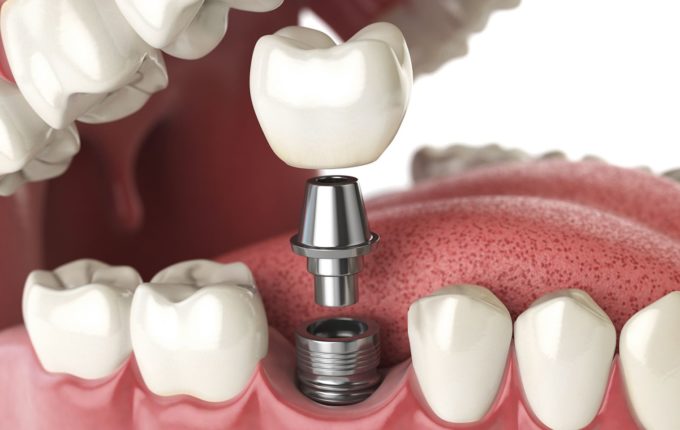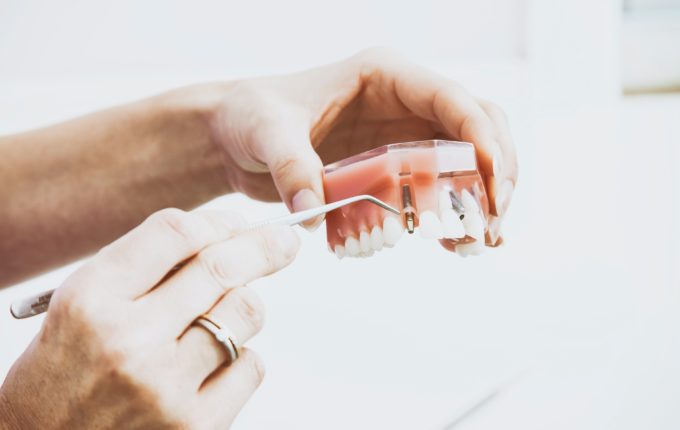Signs That You Might Need Dental Implants
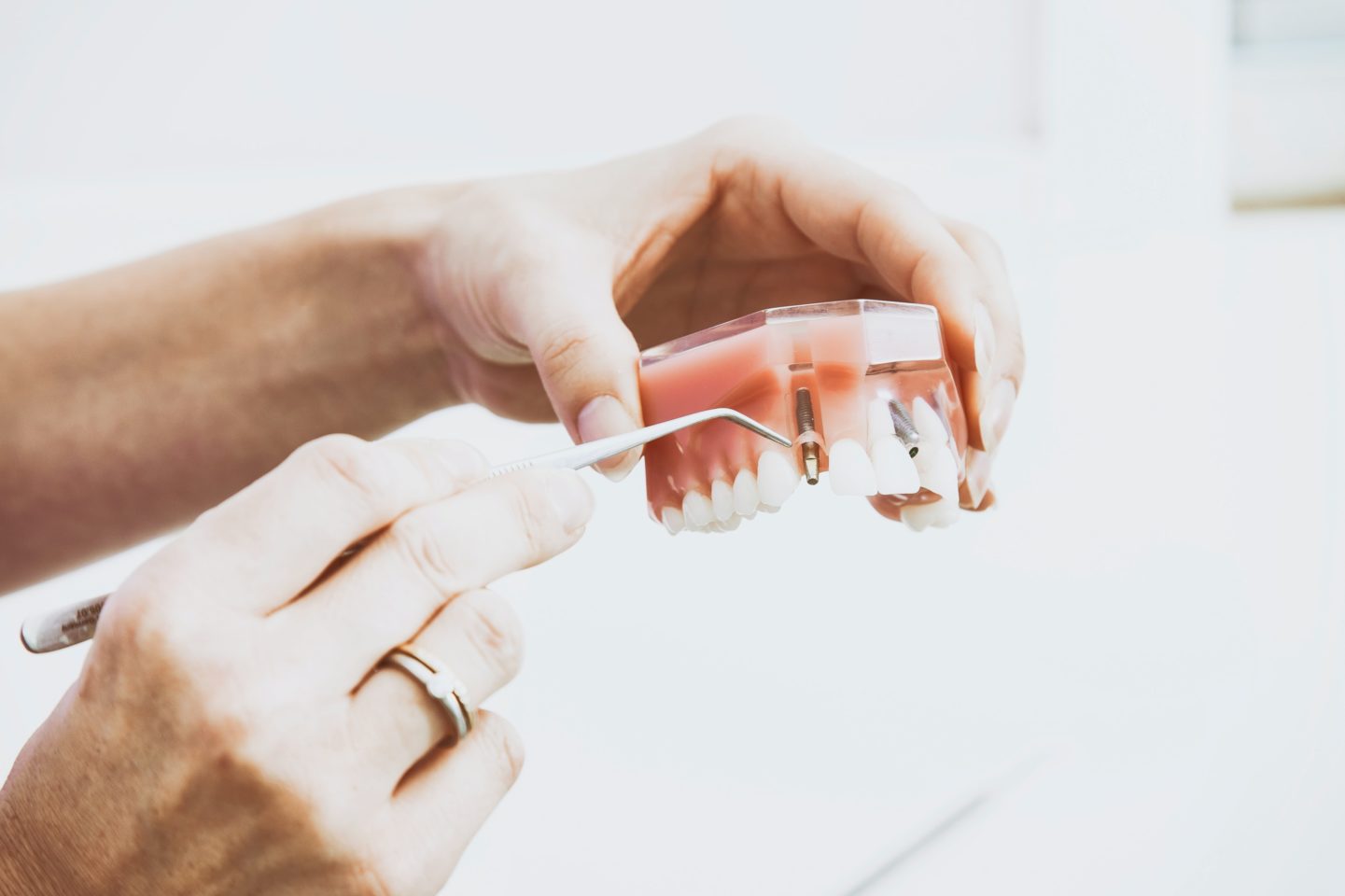
Your eighteen-year-old son is home from college and you decide to have one more one-on-one basketball game with him. Ten minutes later, your upper front tooth has been knocked out and no one can find it. You have just joined an ever-growing club of Americans, 135 million, who have at least one tooth missing and are in need of dental implants. In fact, 35 million Americans are totally edentulous ( missing all their teeth) and would be well-served with full mouth implant correction. Implant dentistry is the gold standard for replacing lost teeth. It is easy, effective, and has a 98% success rate. 3 million Americans, already, have successful implants.
Causes Of Lost Teeth
- Periodontal disease
- Systemic disease i.e.diabetes
- Diets high in sugar
- Improper home care-brushing and flossing
- Not seeking dental care promptly or consistently
- Decay (caries, cavities)
- Overcrowding, malalignment (congenital problems with jaw)
- Traumatic injury
Signs And Symptoms That You Need Implants
1. Missing Teeth
- Unaesthetic
- Shifting of teeth surrounding the space (nature abhors a vacuum) and loss of arch integrity
- Loss of function upon chewing, speaking
- Loss of self-confidence in one’s appearance
2. Infected Teeth
- They are a precursor to missing teeth
- Bacteria + Sugar = Acid
- Acid eats away the outer surface of the tooth (enamel) forming cavities (caries).
- Cavities, if untreated, go into the pulp of the tooth (nerve) and create infection and pain.
- Pulpitis can lead to abscess formation and, in extreme cases, cellulitis and loss of teeth.
- Bacteria and sugar lead to plaque formation and, if untreated, to calculus (tartar) which leads to gingivitis and in advanced cases periodontitis and tooth loss
3. Deteriorating Jawbone
- If teeth are lost, over a period of time, in the area of the missing tooth, the jaw bone will deteriorate.
- Teeth supply stimulation to the underlying bone and keep the bone intact.
4. Ill-Fitting Dentures and Removable Bridges
- If the denture is loose or ill-fitting the patient will have pain, lose function, develop sore spots, and lose bone.
- Implants hold dentures in place restoring function and comfort.
- Dentures should not be offered as a treatment option without offering implants to support them.
5. Insecurity
- Missing teeth lead to loss of function, chewing, and speaking.
- Missing teeth can negatively affect a person’s smile.
- Missing teeth can lead to emotional effects like loss of self-confidence, loss of self-esteem, and depression.
6. Difficulty Chewing
- Implants increase function and they most resemble natural teeth in function and cosmetics.
- Implants can support removable bridges by making them much more secure.
- Implants can create fixed bridges to give optimum function and form.
7. Loose Bridge
- If the bone is lost around supporting teeth of the bridge (abutments), oftentimes teeth must be extracted creating a large space.
- Implants can restore the teeth in the missing space and maintain jawbone levels in this area.
- Periodontal disease can create a loose bridge and, if not treated properly, can lead to extraction and subsequent tooth loss
8. Sunken Facial Appearance
- When a patient wears a denture for a long time, jaw bone and vertical height is lost.
- Implants stimulate bone growth and, when restored properly, maintain vertical dimension and fill out the facial contours.
9. Using Too Much Messy Denture Adhesive
10. Broken Or Severely Cracked Tooth Below The Gingival Line
- These teeth are best extracted because they cannot be restored.
- Implants have a 98% predictable success rate.
The Dental Implant Procedure at 209 NYC Dental
- Proper diagnosis
- Review medical history, radiographs, and study models
- Dental CT Scan if needed
- Detailed meeting with Dr. Jin Wang, board-certified periodontist/implantologist
- Detailed meeting with a cosmetic, prosthodontic specialist (who restores the implant)
- Detailed meeting with a treatment coordinator to discuss cost, insurance benefits, and payment plan
- Surgical meeting with Dr. Wang
What to Expect from Implant Surgery
- Tooth is extracted
- Bone graft placed
- Often the implant is placed at the same visit
- In some cases, a bone graft must be placed and we wait 2 months before the implant is placed (an implant is a false root made of titanium that anchors your new tooth).
- After the implant is placed we usually wait 3 months for the bone to osseous integrate with the implant.
- The implant is now extremely stable
- The cosmetic restorative dentist takes over
- The implant abutment is gently screwed into the implant (like a post).
- An impression is taken of the abutment and on the next visit, the beautiful porcelain crown is inserted.
- Viola, you are done…time to smile
209 NYC Dental
Implants are a vital part of modern cosmetic dentistry at 209 NYC Dental. It takes a multispeciality office like ours to start and complete an implant case at its highest level. This is what we do. We never lose sight of the fact that the implant is connected to a wonderful patient. Thus our motto is, “We treat people not just their teeth.” If you have any of the symptoms discussed, please do not hesitate to make an appointment with us. We are open seven days a week. We are anxious to meet you. Call us today at 212-355-2290.
 Our History
Our History
 Our Providers
Our Providers
 About Us
About Us
 Blog
Blog
 Contact us
Contact us
 Diagnostic & Preventive
Diagnostic & Preventive
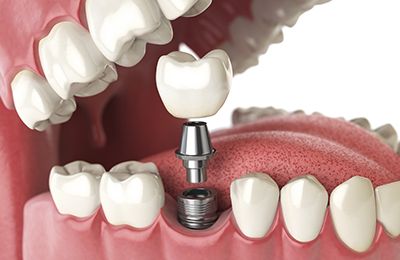 Implant Dentistry
Implant Dentistry
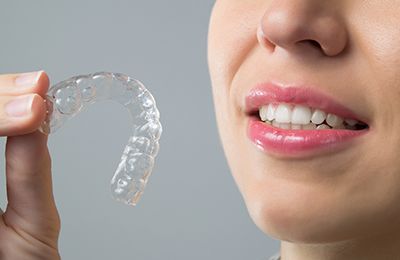 Clear Braces - Invisalign
Clear Braces - Invisalign
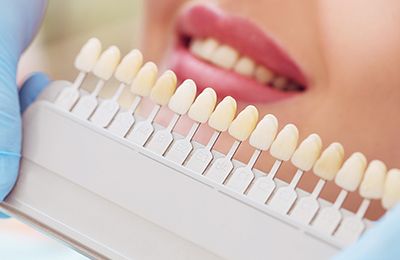 Cosmetic Dentistry
Cosmetic Dentistry
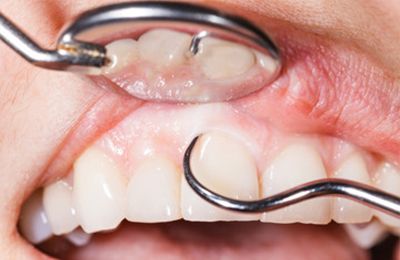 Periodontics
Periodontics
 Patient Forms
Patient Forms
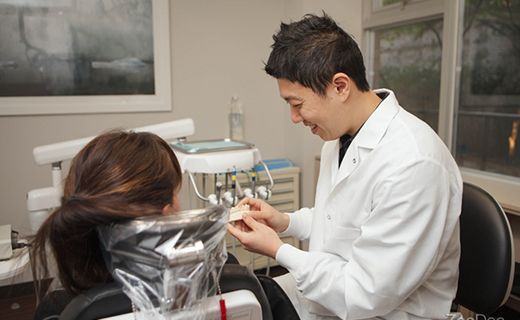 Payment Information
Payment Information
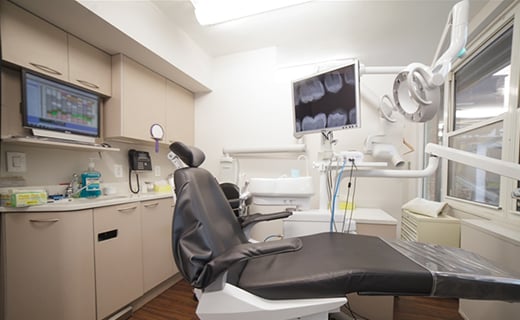 Insurance Options
Insurance Options
 CareCredit Dental
CareCredit Dental
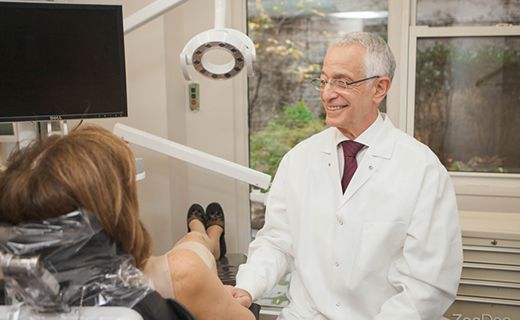 Appointment Policy
Appointment Policy
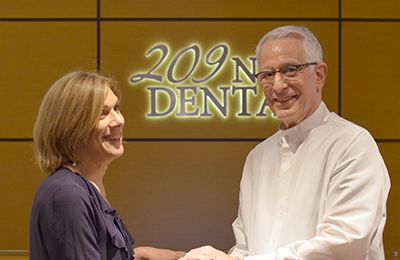 Free Consultation
Free Consultation
 Complimentary Teeth Whitening
Complimentary Teeth Whitening
 Teeth Whitening
Teeth Whitening

